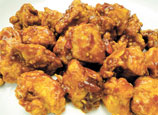
A forthcoming series of light-hearted Chinese philosophy comics books in both Chinese and English explains key aspects of Chinese culture and aims to reduce foreigners' "culture shock." Xu Wei reports.
Chinese students' respect and even reverence for their teachers is legendary and traditionally pupils do not question and certainly never challenge their ideas and authority. The teacher-student relationship is often compared with that of father and son, in which a father and teacher set a good example. Like good children, students set aside their own opinions and obey.
These ideas are still pervasive in East Asian education, while in the West, individualism is usually emphasized.
Still, though many people believe that this reverence is a long Chinese and Confucianism tradition, it is not, in fact, what Confucius (551-479 BC) preached more than 2,000 years ago. According to the "Analects" of Confucius, the ideal relationship between teacher and pupil is like that among friends.
"Among any three people walking, I will certainly find something to learn. Their good qualities are to be followed, and their shortcomings are to be avoided," the philosopher told his students. He also treated his disciples as equals by teaching them open-minded ideas.
The ideas and principles of Confucius and five other great thinkers - Mencius, Laozi (Lao Tzu), Zhuangzi, Mozi and Sunzi - will be featured in a lighthearted, appealingly illustrated series of cartoon or comics books in both Chinese and English.
Titled "Hundred Schools of Thought," the books on Confucius and Mencius will be published by July this year and books on the other four influential philosophers will be out by year's end.
Works on other thinkers will follow.
"The series will shed light on basic traditional Chinese values and ethics, helping people of today understand how Chinese people think and behave," says Liu Jun, general manager of Shanghai City Animation Publishing and Media Co Ltd, publisher of the series.
"Unlike many books that just preach the thoughts of the philosophers, we try to make our series more vivid, interesting and easy to understand for children and teenagers."
The series in English will help students overseas improve their understanding of China and the roots of Chinese culture.
"There are different ways of thinking, working and living between Chinese and Western people," says Chen Jingxi, an official from the Shanghai Municipal Government.
"The book can help reduce the culture shock and facilitate further cultural exchanges."
In addition to information about the lives and principles of the philosophers, the books will include famous legends and sayings, as well as travel information about scholars' hometowns.
The volumes, each around 100 pages, will be illustrated with paintings that incorporate both Chinese elements and international styles.
The most famous of the illustrators, Qian Dinghuan, is known for his comics books of Chinese classics such as "The Romance of Three Kingdoms" and "Water Margin," or "Outlaws of the Marsh."
Confucius and Laozi (believed to live in the 6th century BC) were revered and Laozi virtually deified as Taishang Laojun, Supreme Venerable Lord of Heaven. Official food and animal sacrifices were made to Laozi for centuries.
Professor Shao Bingjun, an expert in Chinese literature and culture from Shanghai University, says the forthcoming series deifies no one.















 Black-headed gulls come to Kunming for winter
Black-headed gulls come to Kunming for winter


![]()
